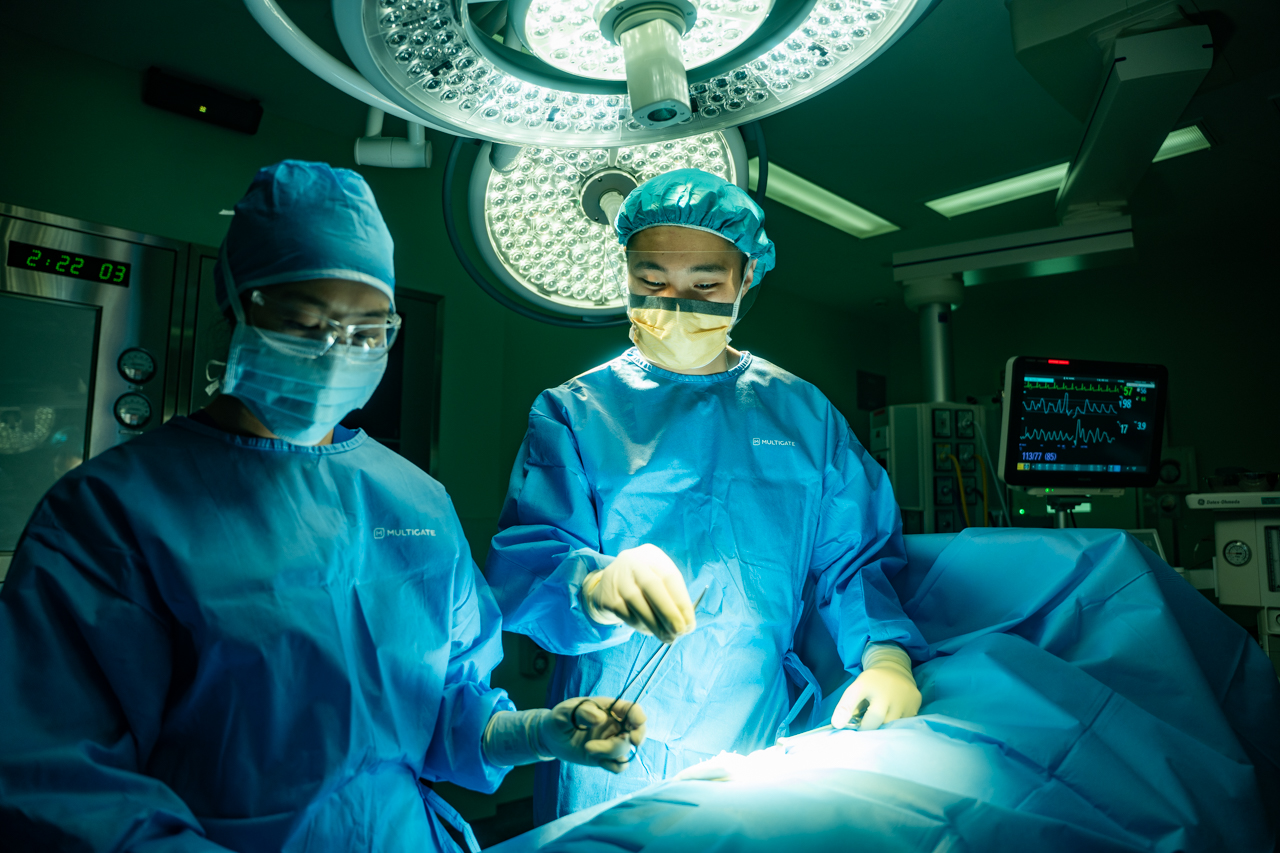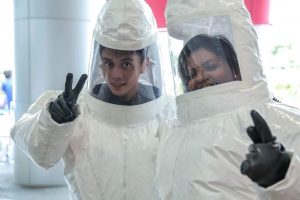This piece is brought to you by Healthcare Scholarships.
All images by Xue Qi Ow Yeong for RICE Media
Russell Teo steadied his breath, adrenaline surging as he focused on keeping his gloved hands steady in the operating theatre. Outside these walls, the world carried on, unaware of the life-or-death struggle unfolding within.
“Scalpel,” the surgeon murmured.
“Scalpel,” Russell echoed, placing the instrument into an outstretched hand.
The surgeon’s brief nod was more than an acknowledgement—it was trust, conveyed in the operating theatre’s unspoken language. Russell, a 29-year-old senior staff nurse at Singapore General Hospital (SGH), has been in these high-stakes situations long enough to anticipate the request before the last syllable left the surgeon’s lips.
An operating theatre nurse typically assumes one of four key roles during surgery: scrub nurse, circulating nurse, anaesthetic nurse or Post Anaesthetic Care Unit (PACU) nurse.
Russell is often assigned the role of the scrub nurse, who is responsible for maintaining the sterile field, passing instruments to the surgeon, and ensuring all surgical tools are accounted for. Other times, he functions as the circulating nurse, who works outside the sterile field, managing the overall environment, obtaining supplies and ensuring patient safety and documentation.
A stark change in the rhythm of the beeps shatters the tranquillity of the room. The patient’s vitals were nosediving. The air turned thick with urgency. Without wasting a moment, the surgeon halted the procedure.
In the event of excessive haemorrhaging, scrub nurses like Russell need to supply the surgeons with the necessary instruments, such as clamps, sutures or sponges. These nurses assist in suction, so that the surgeon has a cleaner view to arrest the bleeding.

Time stretched unbearably. Then, finally, a flicker of hope. The erratic beeping of the monitors softened, and a rhythm re-established. The patient had been pulled back from the brink.
When the surgery was finally completed after what felt like an eternity, the team exhaled a collective sigh of relief. As Russell peeled off his gloves, the gravity of that moment settled over him.
“I can’t reveal other details about that surgery, but I’m grateful that was the only time in my three years of working when a patient’s vitals worsened so suddenly,” he recalls.
Russell’s experience in the operating theatre is just a glimpse of the high-stakes but rewarding work that perioperative nurses like him do every day.
In these moments, they’re not just saving lives—they’re essential to the teams that power Singapore’s healthcare.
It’s not easy to decompress after each surgery. Sometimes he sits alone in the men’s changing room after a long day, Russell confesses. It’s how he works through his emotions.
“Before heading home, I try my best to process and unpack any negativity, taking home only the lessons learnt.”
While miraculous recoveries make headlines, the unsung professionals who make them possible often remain in the shadows.
The emotional toll on Singapore’s perioperative nurses is immense. But so is the profound, unspoken impact they make.
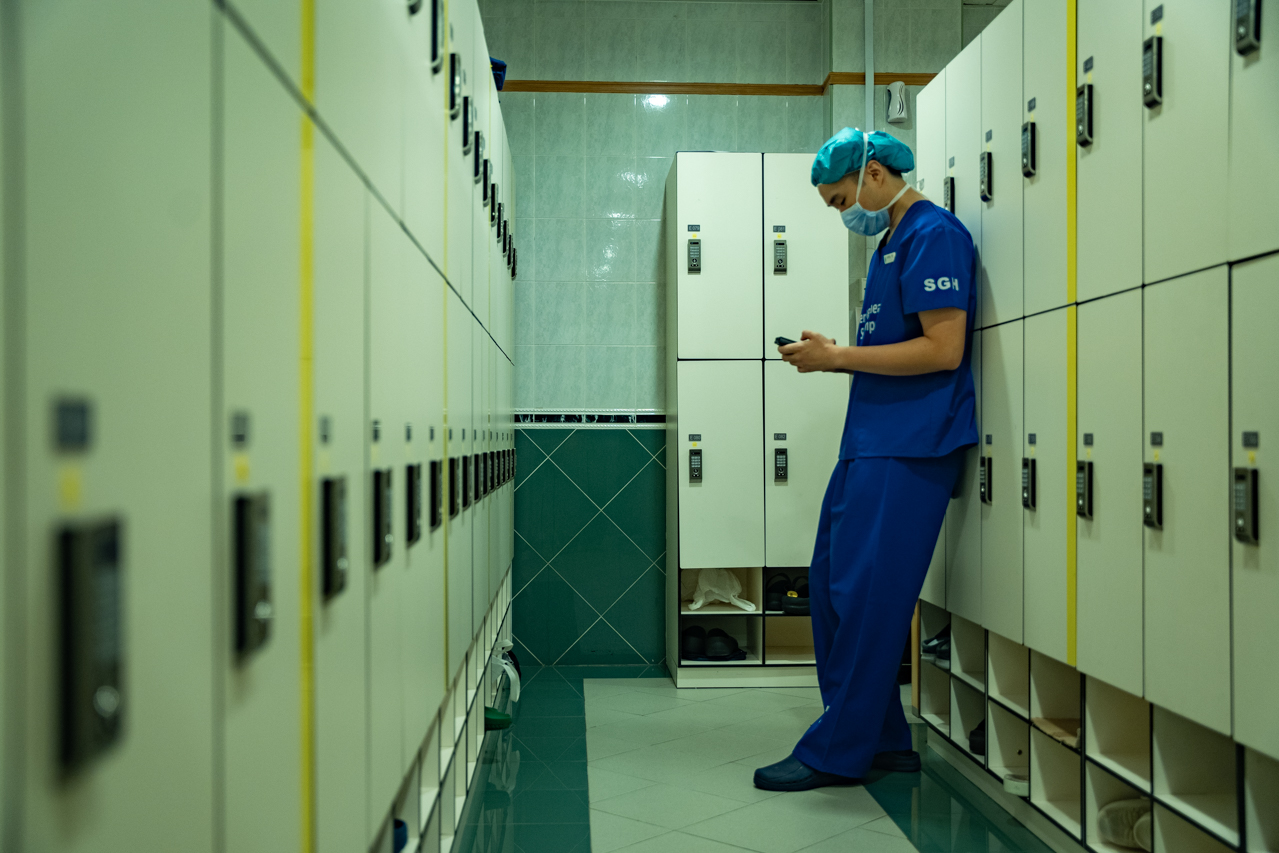
A Keen Eye for Detail
Russell’s fascination with fine print often amuses his family and friends. They tease him when they catch him reading nutrition labels or instruction manuals cover to cover. But this meticulous nature is precisely what makes him an exceptional perioperative nurse.
A perioperative nurse’s responsibility begins long before the first incision. Russell ensures that every instrument has been properly sterilised, every piece of equipment is accounted for pre- and intra-operatively, and every consent form is signed. There is no room for oversight.
Yet, his journey into nursing was not just a career choice—it was deeply personal.
His mother’s stroke in 2016 thrust him into the world of hospitals and surgeries. Watching the medical team work tirelessly to save her, a young Russell felt an unshakable pull towards the operating theatre.
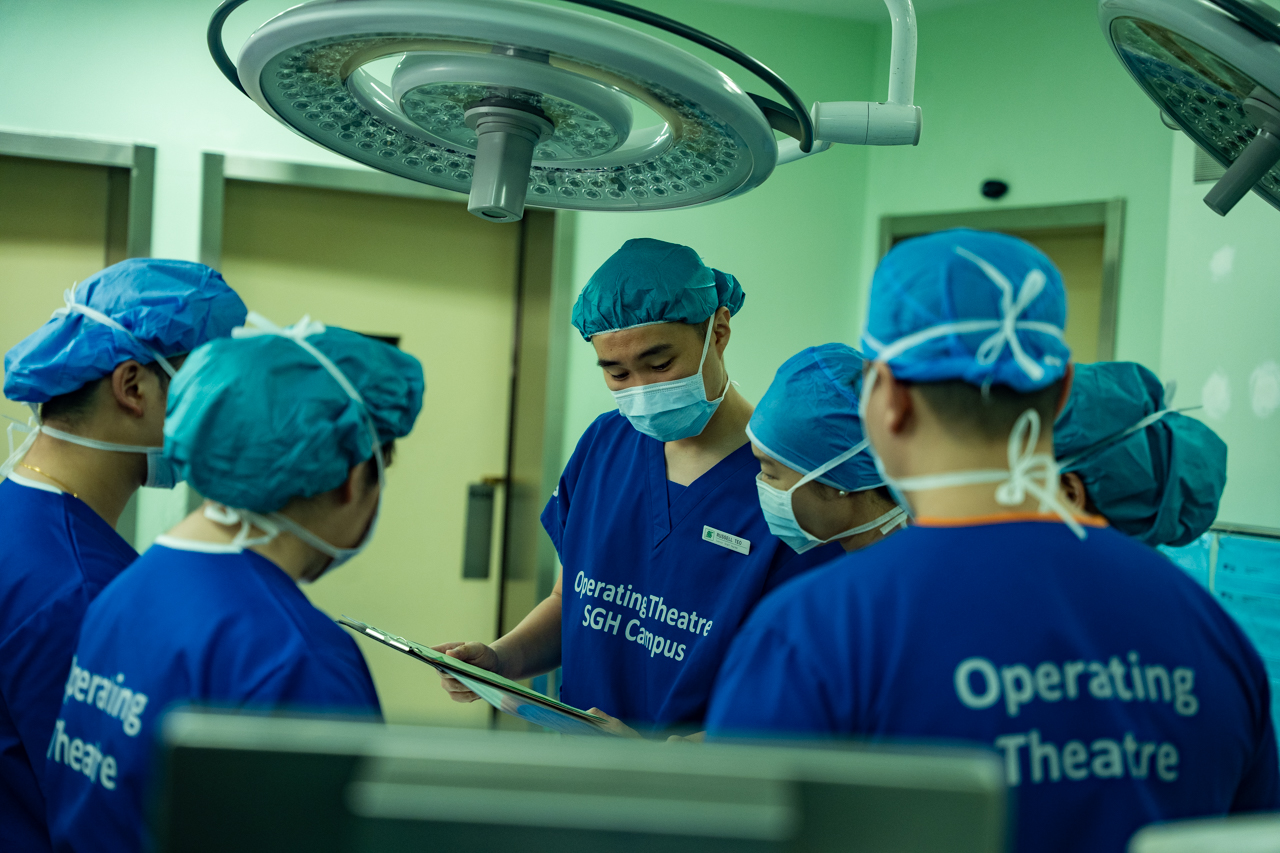
Not long after, he applied for the Bachelor of Science (Nursing) degree at the National University of Singapore and was accepted. Many nurses who undergo this course have their education sponsored by Healthcare Scholarships.
From 2018 to 2022, as he pursued his degree, Russell didn’t just acquire technical skills—he grew into a more empathetic caregiver for his bedridden mother. His dedication to caring for his mother deepened, and so did his professional expertise.
“Every day is like a new lecture,” he says. “As perioperative nurses, we grow with every case we assist in.”
Russell vividly recalls the very first time he witnessed a surgery—a hernia operation. Fresh out of school, he stood at the edge of the theatre, nerves buzzing, watching as a scalpel made its first cut into flesh. It was a moment that left him in awe, yet filled with an overwhelming sense of responsibility that would stay with him forever.
He knew, then, that this was where he was meant to be.
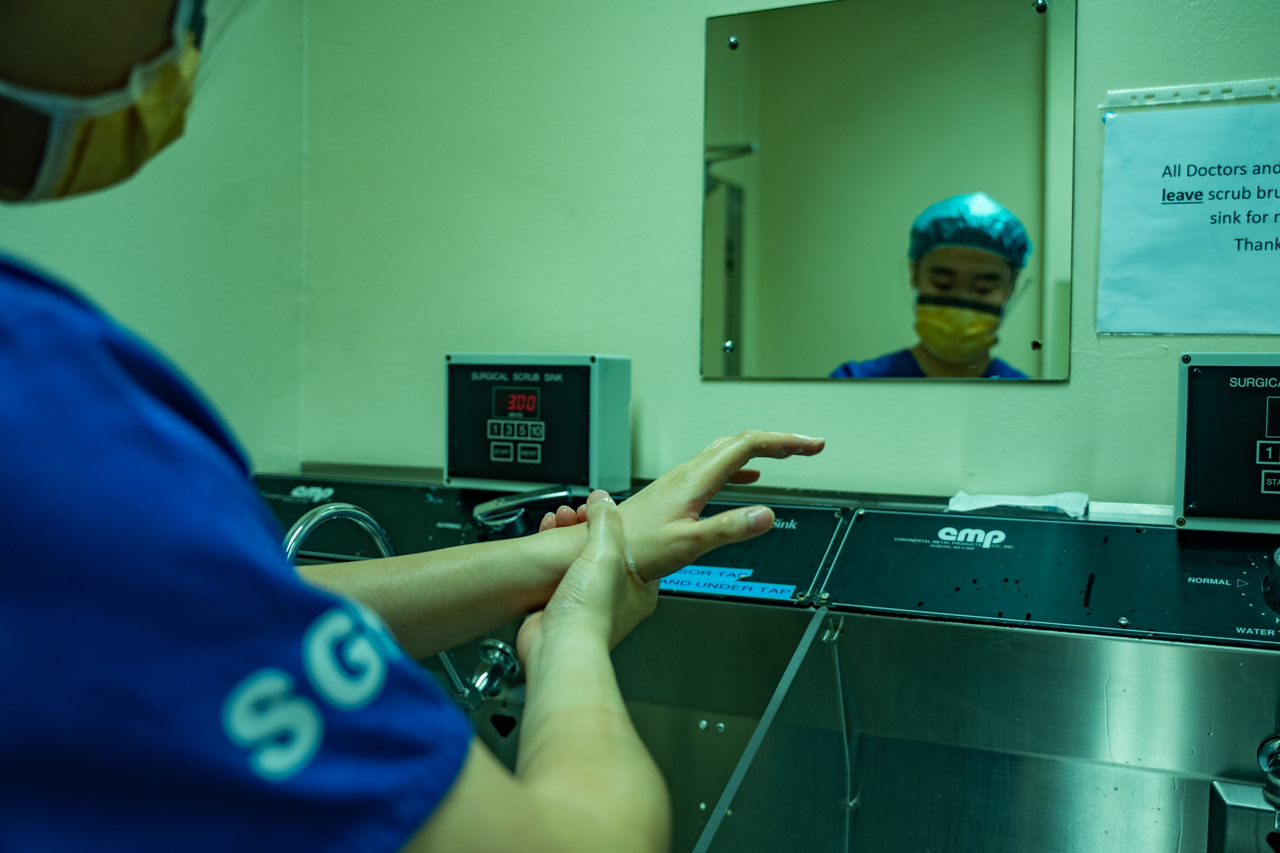
A Precise Cut
Precision is Russell’s creed. He pores over case notes, ensuring he knows the intricacies of every procedure before stepping into the operating theatre. There is no space for assumptions. If something is unclear, he asks.
“It takes time and effort to become a good perioperative nurse, to anticipate the surgeon’s needs so that there are no pauses,” he explains.
“We also have to be ready for unexpected complications. For example, a keyhole surgery—which typically involves tiny incisions—can escalate into a bigger open procedure.”
Horror stories of surgeons leaving instruments inside patients haunt medical literature. It’s Russell’s duty to ensure that never happens under his watch. He meticulously counts needles, clamps, and surgical tools before and after every procedure.
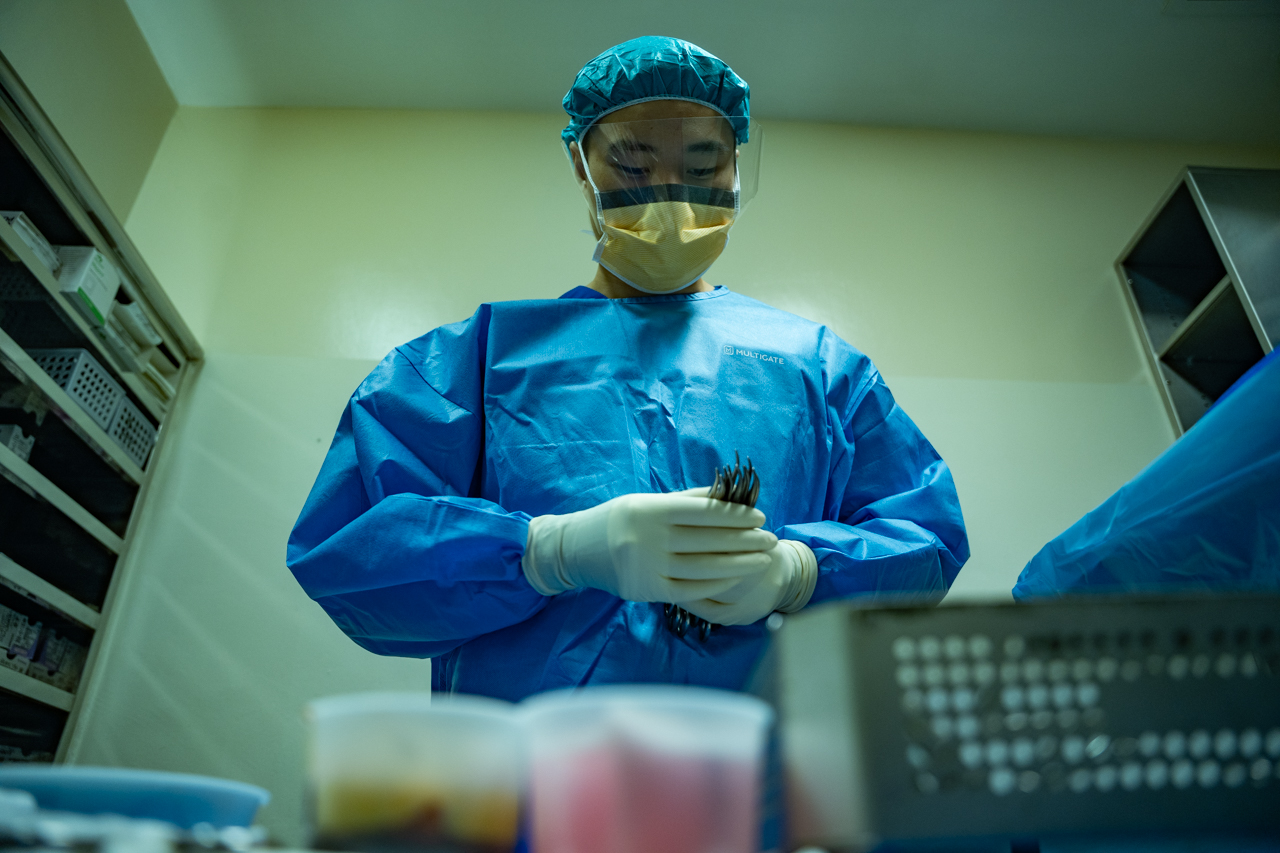
Time is another invisible but critical element. Russell’s vigilance ensures that vital timelines are met to prevent irreversible harm.
“When we clamp a vessel to restrict blood flow, we usually don’t go beyond 15 minutes, because prolonged deprivation can damage an organ,” he explains.
Each day, he faces high-pressure situations that require quick thinking and unwavering precision. It’s this constant demand for focus that has helped transform Russell, once quiet and introverted, into a confident problem solver.
“Don’t be afraid to ask questions. If you need to speak up, speak up,” he advises.
The Backbone of the Operating Theatre
In the operating theatre, hierarchy exists. But when lives are at stake, teamwork takes precedence.
Surgeons may lead, but Russell’s calm and focus ensure the operation proceeds without a hitch. Perioperative nurses like him are the lynchpins that keep the intricate dance of surgery in motion—sometimes overnight, sometimes for more than ten gruelling hours at a stretch.
The stress can be suffocating. Tensions flare, words turn curt, but Russell has learned not to carry negativity beyond the theatre doors.
“I try to leave the stress behind when I take off my scrubs and clock out. I take with me only the knowledge that I’ve gained.”
Still, he is grateful for a close-knit team. Their camaraderie, forged over long shifts and shared meals, is a lifeline.
“In this job, teamwork is everything,” he says. It can mean the difference between life and death.
During moments of chaos, when nerves could easily take over, Russell stays anchored. His ability to remain calm in the face of uncertainty is more than just a professional trait—it’s a personal philosophy that guides him through both the theatre and life itself.
“I look at my instruments, I look at the patient, and I remind myself that nervousness only disrupts the surgery.”
In the operating theatre, a calm atmosphere is critical. Russell and his colleagues work not just for efficiency, but for the patients whose lives depend on their ability to remain steady, composed, and united.
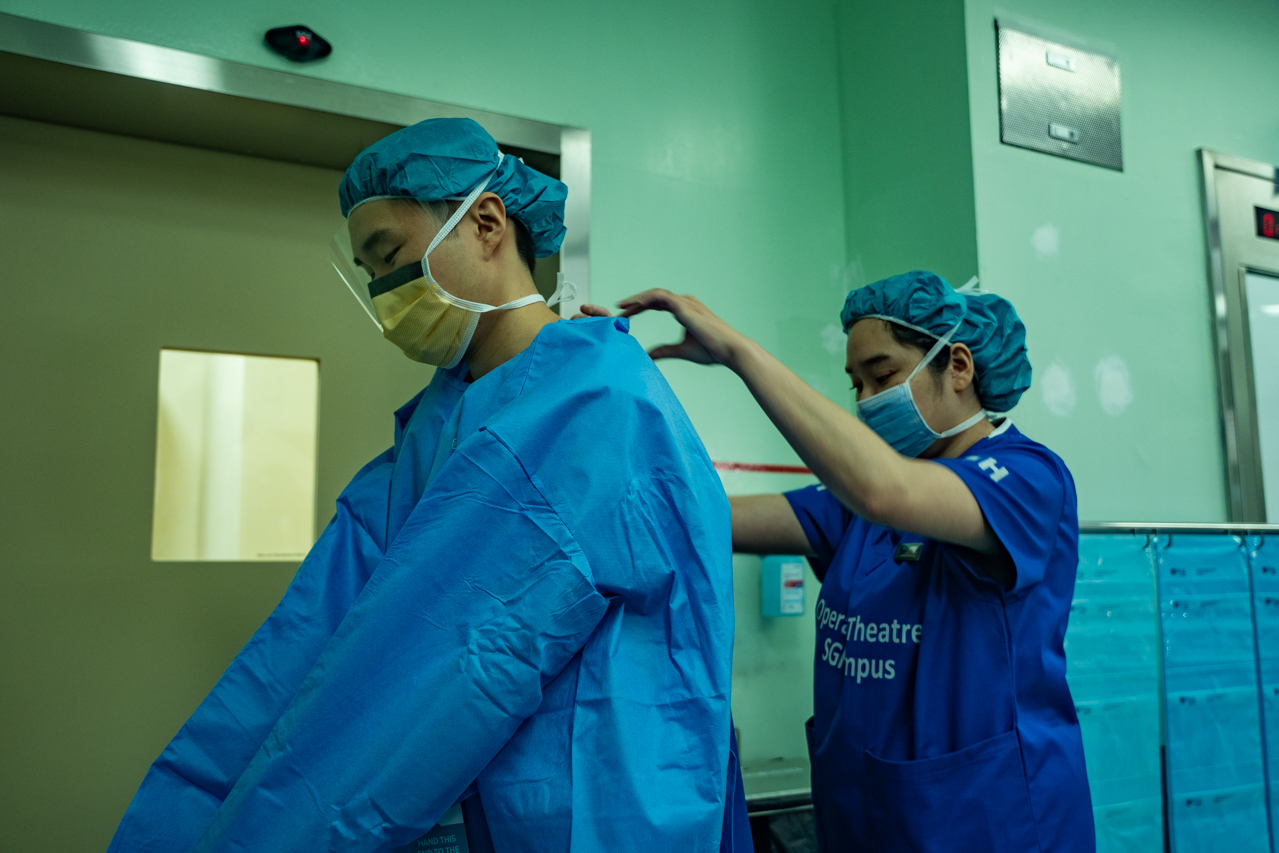
The Grit Behind the Gratification
“I won’t lie, it’s a stressful job,” Russell admits. “But the small words of appreciation from surgeons and seniors keep me going.”
He shares that what truly fuels his passion is the sense of purpose he finds in helping others—an unparalleled happiness that drives him every day.
“Knowing that a patient has left the operating theatre healthier makes all the blood, sweat and tears worthwhile.”
Now pursuing an Advanced Diploma in Perioperative Nursing, Russell continually expands his expertise, learning new skills such as assisting in robotic surgeries.
For him, it’s not just about professional growth—it’s about staying at the cutting edge of healthcare to offer the best possible care to his patients. Each new skill acquired only strengthens his commitment to his mission: to be there for others when they need it most.
His work, however, is far from glamorous. It often involves blood splattering onto his arms and face shield. Lower intestinal surgeries expose him to putrid smells and involuntary bodily expulsions.
It’s gritty. It’s raw. And it’s not for the faint-hearted.
But it is, in his words, “deeply rewarding.”
“I’ve learned more in the operating theatre than I ever did in school. If you love learning, this job teaches you something new every single day.”
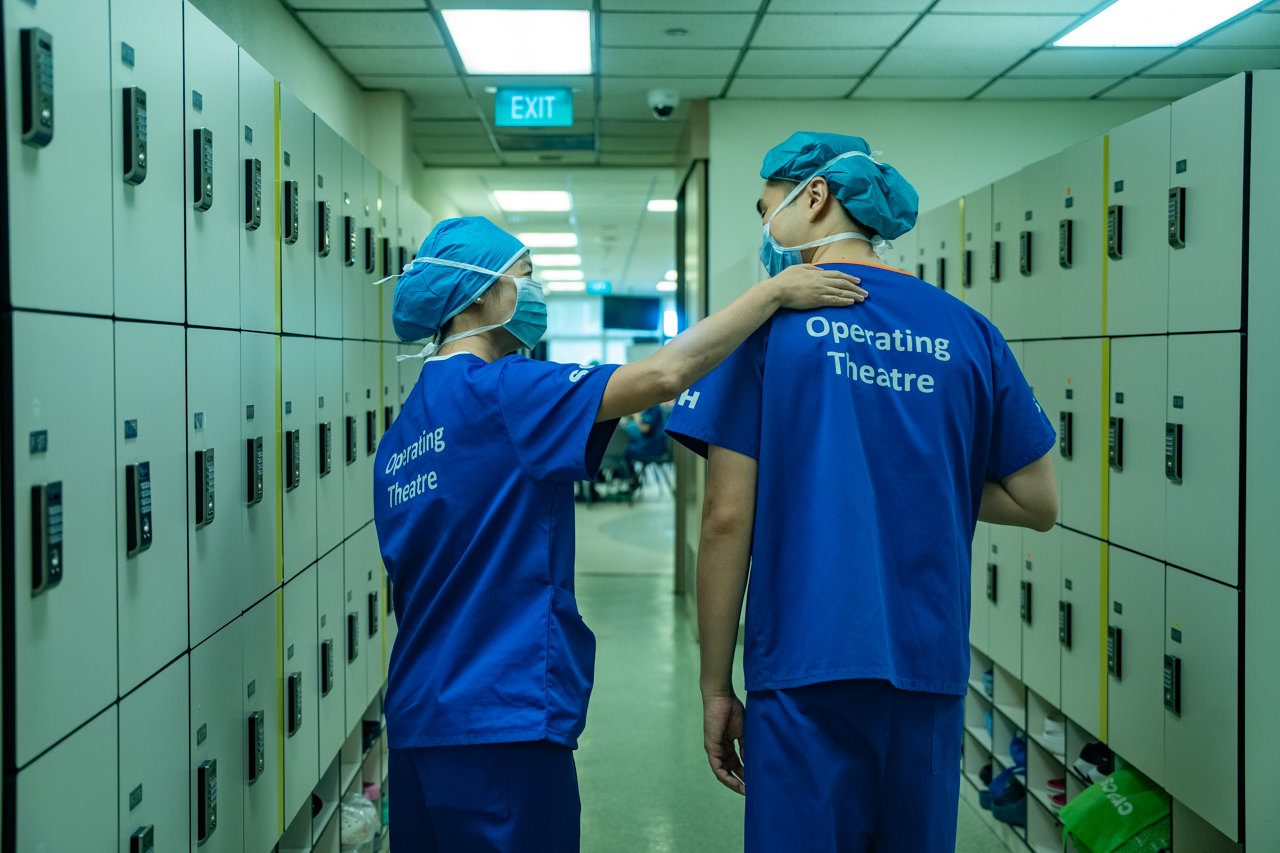
Scrubbing In, Saving Lives
The role of an operating theatre nurse demands the reflexes of a professional goalkeeper and the meticulousness of a Big Four auditor.
However, patients who undergo surgery rarely recognise their nurses—the ones who play just as central a role in the success of surgeries.
“Operating theatre nurses don’t get to follow up with patients,” he reflects. “Once the surgery is over, they move on. And so do we.”
Once in a while, however, when Russell’s help is needed to prep a patient for surgery, he does get to know these patients.
Many of them are anxious, understandably, but are soothed by Russell’s listening ear and reassuring words.
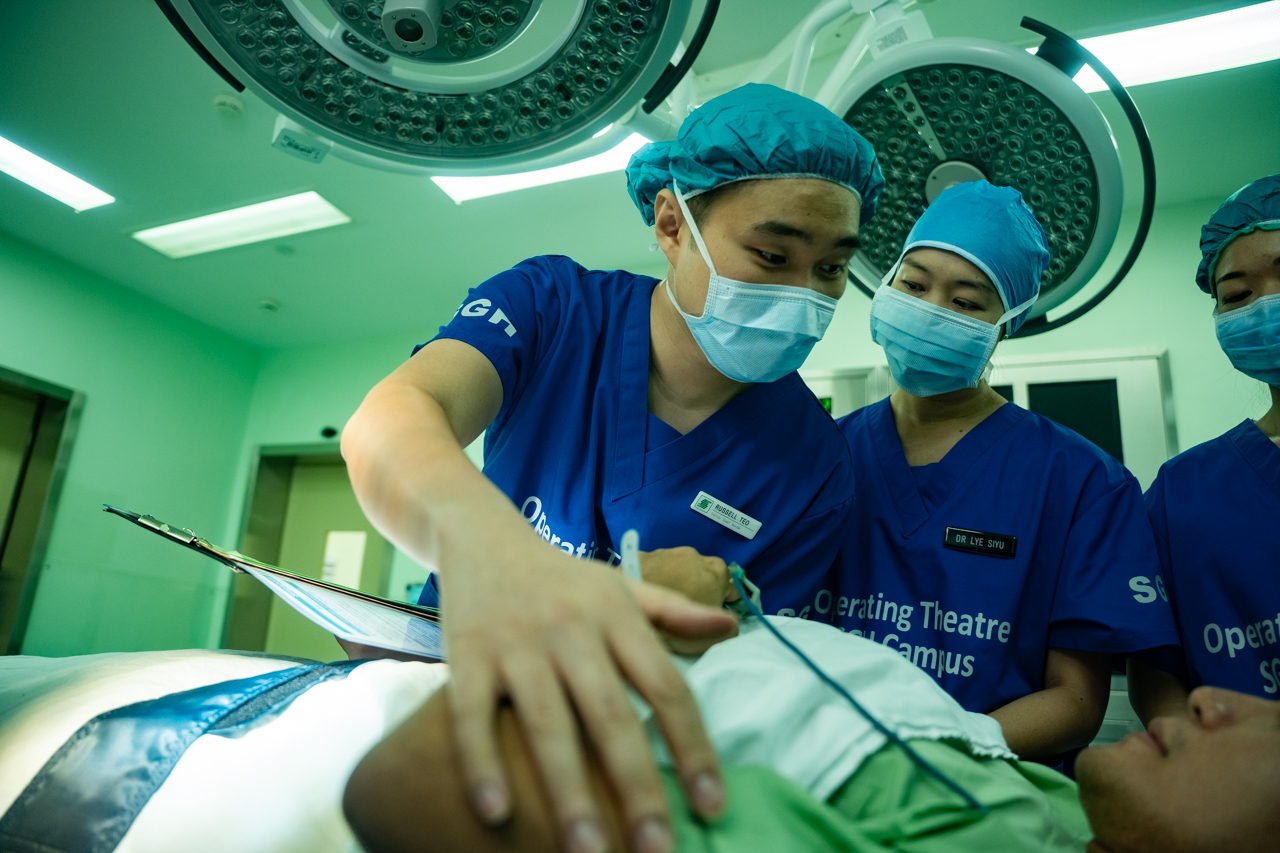
“My role is often unrecognised by patients, but that doesn’t affect me. When I do meet patients, I reassure them that they are in the safe hands of a capable team who only have their best interests at heart.”
Every day, Russell dedicates himself to their healing and recovery, and for him, that’s more than enough.
Fulfilment, he believes, isn’t measured by gratitude but by impact.
“When I help remove a cancerous mass or insert an implant, I know I’ve played a part in changing someone’s life. Even if they never know my name, that knowledge alone keeps me going.”

